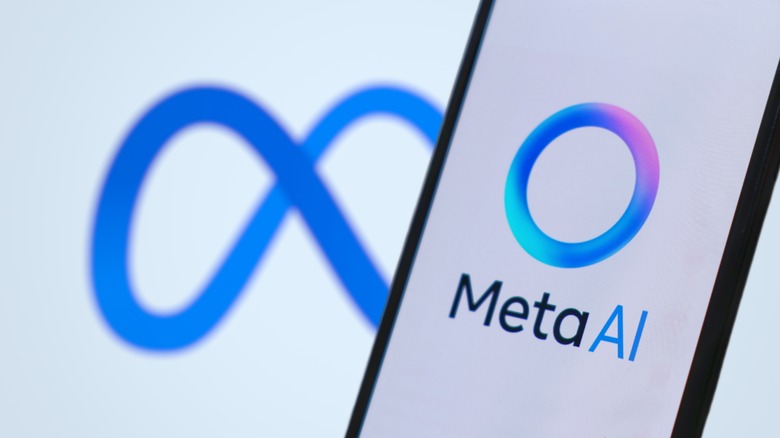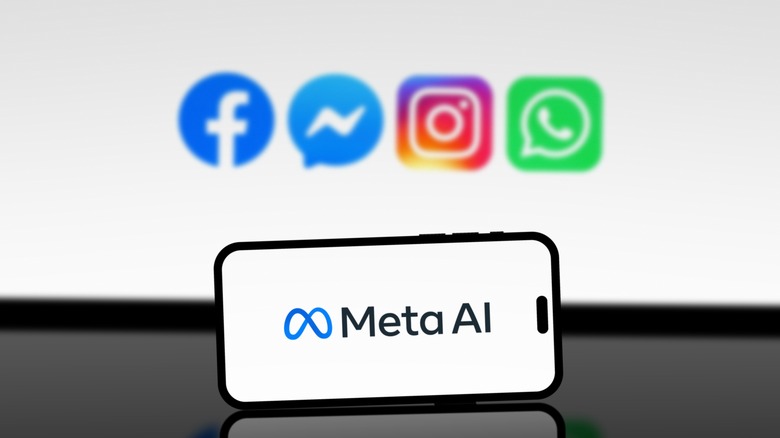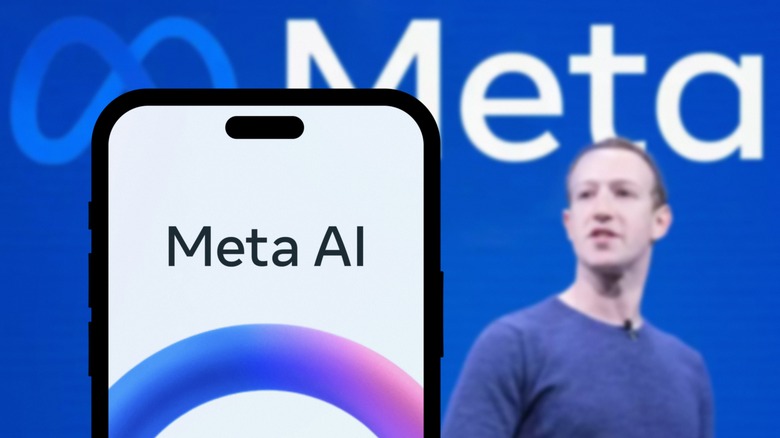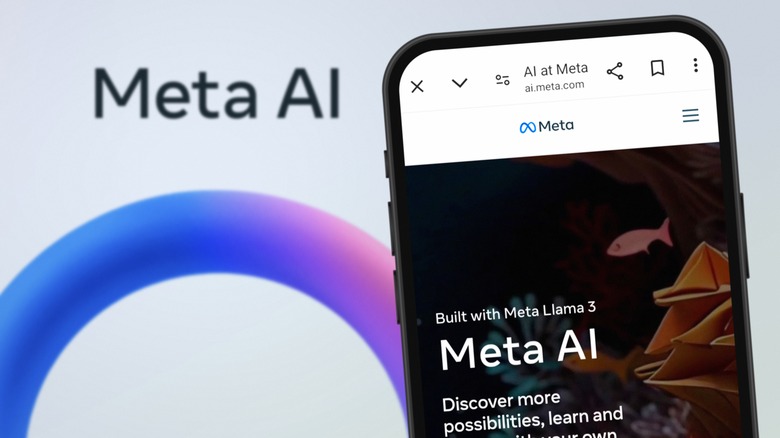Can You Opt Out Of Instagram's Meta AI Features?
These days, it has become increasingly difficult to tell whether content was created by real people or from AI-powered generators, including those shared on Meta. With the planned roll out of Meta AI, the lines are set to blur even further. In April 2024, Meta officially launched Meta AI, an all-in-one assistant with a slew of capabilities, which include intelligent search features, image generation, and complex task management.
As of July 2024, Meta AI can be accessed in 22 countries in selected languages through social media platforms under the Meta group of companies, which are Instagram, Facebook, WhatsApp, and Messenger. Currently, some of Meta AI's features, such as AI studio and hardware-dependent integrations with the Ray-Ban Meta Smart Glasses, are still undergoing testing, so they have limited availability in some regions. Although there have been plans for Meta AI availability on the Meta Quest and reports of Meta developing their own wearable AI-powered earbuds with cameras. If successful, this could help bring Meta AI features into the physical world more seamlessly.
On using user data to train AI models, "We don't train on private stuff, we don't train on stuff people share with their friends. We do train on things that are public," @Meta Chief Product Officer Chris Cox #BloombergTech pic.twitter.com/FC0SWlTgqY
— Bloomberg Live (@BloombergLive) May 9, 2024
Unfortunately, many users were not happy when reports of Meta using their personal data to train its AI model went public. Meta hasn't officially disclosed when it started scraping its user data on its various social media platforms to make these features. However, Meta's Chief Product Officer Chris Cox did confirm that they've been training AI models on publicly available data on Facebook and Instagram during a Bloomberg Live interview in May 2024.
How to opt out of Instagram's Meta AI features
Depending on your region, options for opting out of Meta AI vary. For example, BBC reported that EU and UK Instagram users were informed of Meta's plans in early June 2024. During this period, several users reported recurring layout changes in Meta's request pages, which made it difficult to opt out. After discussions with the Irish Data Protection Commission (DPC), Meta announced that it would delay its plans to train its AI models with data from European accounts.
As of writing, there is a way to request Meta to manage your data gathered for AI training, which includes accessing, removing, and opting out of having it used. To submit a request, visit the Data Subject Rights for Third Party Information Used for AI at Meta page, fill out the details, and click Send. However, it's critical to manage your expectations because Meta specifically notes that submitting a request via its form is not a guarantee that it will be granted.
It's important to note that, for the most part, Instagram is "free" to use. In the past, users only had to "pay" Instagram with their attention through ads. However, these days, users are paying not just with attention, but also via their privacy. AI chatbots with "different personalities" and Meta's AI-generated images are being trained by human interaction on the platform, and some users may not know the full scope of what that entails. Alongside minors who can't consent, many users have been using Instagram since the early 2010's and didn't sign up for their photos, videos, images, and captions to be used like this. And this is the heart of the problem with Meta's push for AI-integrated features on Instagram — the lack of consent.
Meta's history of generative AI bets
In the early days of Instagram, the social media app was just a fun place to share photos adorned with silly filters with your friends, family, or followers through a chronological feed and profile page. Through the years, Instagram has evolved to include a constantly changing algorithm that determines if and when your content gets viewed and a host of other sharing options, like Reels and Stories. But, one new Instagram feature that is making a lot of users nervous is Meta AI.
In recent times, generative AI has been the talk of the town, disrupting many industries in its wake. Unsurprisingly, Meta has thrown its hat in the ring as well and announced the launch of its large-language model AI, LLaMA, in early 2023. Since then, Meta has revealed a slew of generative AI features for Instagram, which include AI- generated stickers and backgrounds. In addition, Meta also released other services in line with the generative AI boom, like Voicebox, an audio generation tool, and Code Llama, a code assistance tool.
Unfortunately, Meta isn't the only tech giant that has been dipping its feet into the wild west of generative AI. In recent times, many users are looking to defend their privacy from a host of other platforms looking to use their data to develop AI-powered tools.
The current landscape of generative AI data scraping
In recent times, AI has been developing at an unprecedented rate and becoming available in everything from our smart home devices to our mobile phones. Unfortunately, not all of them were trained on data acquired through ethical means.
While unofficial guides for scraping social media have been around for years, a growing number of legacy platform owners have committed to letting generative AI services use their public user data for training purposes. In the past few years, some notable companies have stepped up to ensure that they would at least get paid for having crawlers scrape their user-generated data, like Twitter, Reddit, WordPress, and Tumblr. Although some landmark lawsuits, such as the ongoing one with Google, are underway, many countries are still navigating how to best address growing privacy threats that transcend industries and borders. Until they get their footing, users are left to fend for themselves to protect their rights.
As with any type of privacy or security measure, you're only as safe as the least secure person around you. In an age where even strangers can post your photos or work without your consent, you're never going to be truly free from the pitfalls of data scraping. But, you can make an effort to ask permission from people when you do post their likeness on your Instagram and avoid unnecessarily exposing other people, especially those who cannot provide consent for themselves or don't understand their implications, like children.



